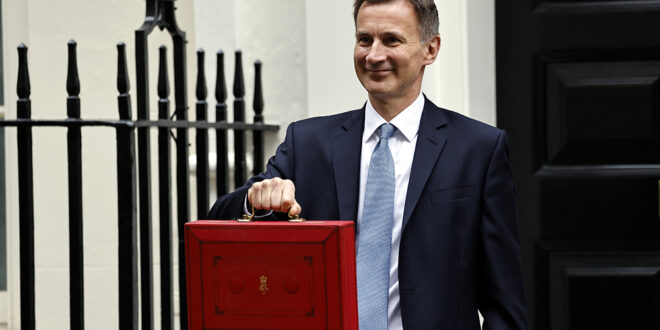Chancellor Jeremy Hunt has said that the UK is no longer going into recession and that inflation will fall faster although he also warned that “there is a long way to go” in Wednesday’s spring budget.
The budget centred around childcare and pensions with the Chancellor focusing on increasing the workforce and encouraging investment. The latter means good news in the main for the tech industry although critics suggest it may not go far enough.
The main rate of corporation tax, paid by businesses on taxable profits over £250,000 will increase from 19% to 25%, with companies that earn profits between £50,000 and £250,000 to pay between 19% and 25%. However, companies that invest in new machinery and technology will be able to lower their taxable profits, which could prompt a rise in sales across the board.
The big news for tech in the spring budget is the £900m injection for a new quantum computer facility. The government is keen to support the tech industry, and together with a £2.5 billion boost over the next ten years for research and innovation, this aims to ensure that the UK is not left behind in the global race to be at the forefront of technology development.
Sue Daley, director of tech and innovation at techUK, said: “The commercialisation of quantum technologies will play a key role in the UK’s ambition to be a global science and technology superpower. That is why it’s encouraging to see the National Quantum Strategy incorporate recommendations from techUK’s Quantum Commercialisation report and allocate £2.5 billion in funding for crucial steps including skills, procurement, market development and responsible innovation.
“With the right collaboration industry and government can turn the UK’s current success in quantum research into a world-leading position in quantum commercialisation.”
In a bid to ‘level up’ areas of the country 12 low-tax ‘investment zones’ are being planned in a scaled back version of the policy announced by former prime minister Liz Truss last year. The zones will aim to create new business clusters, focused around universities and research institutions, and targeting specific sectors which include digital and tech. Each zone will receive £80 million of support from the government over five years, split between tax incentives and investment in areas such as skills and infrastructure. The zones selected are: West Midlands, Greater Manchester, the North-East, South Yorkshire, West Yorkshire, East Midlands, Teesside, and Liverpool as well as four more in Northern Ireland, Scotland and Wales.
Ritam Gandhi, founder and director of Studio Graphene, said: “The current axis we have in 10 and 11 Downing Street should give tech companies cause for optimism. But their rhetoric of wanting to make the UK a ‘tech superpower’ still requires more substance, and policies cannot be limited to isolated ‘zones’; they must be available to tech firms across the UK. Hopefully more will follow in the Autumn to build on some of the positive commitments outlined today.”
Fuel
The supply chain is heavily reliant on logistics, and the associated costs, so businesses will be relieved to see remains unchanged and that the temporary 5p cut to fuel duty on petrol and diesel, due to end in April, has been kept for another year.
However, pump prices are still an issue and Paul Holland, managing director of UK Fleet, Allstar said: “The price at the pump still needs to come down. The price of a barrel of oil is roughly where it was last year, but retail margins are higher. The trajectory has to be downwards, and we can expect a drop of 10-15p in the near future, should oil prices remain at current levels. If and when this comes into play, it will be another benefit for fleets during the current tough economic conditions.”
Electric vehicles (EVs) are slowly becoming the norm, held back only by the lack of sufficient infrastructure. Mr Holland commented: “I feel there was a missed opportunity in the relative lack of mention in the budget on electric vehicles (EVs). EVs can cost significantly less to fuel than even the least expensive fossil fuel vehicle, so encouraging more fleets to adopt them would save businesses, as a whole, far more money.”
Labour
Child care subsidies enabling parents to go back to work, and incentives for older workers could increase the labour force.
Thirty hours of free childcare for working parents in England expanded to cover one and two-year-olds, although there is a delay due to insufficient child care facilities, which means that roll out in stages will start from April 2024.
Abolishing the cap on the amount workers can accumulate in pensions savings over their lifetime before having to pay extra tax, is aimed at encouraging older workers to remain in employment for longer and 63m has been put aside for programmes to encourage retirees over 50 back to work, ‘returnships’ and skills boot camps.
 PCR Tech and IT retail, distribution and vendor news
PCR Tech and IT retail, distribution and vendor news


